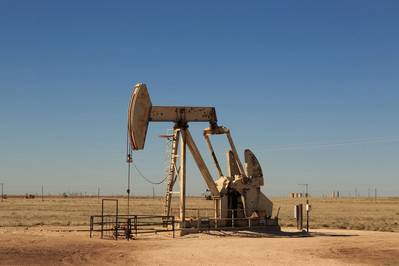OPEC's War On Oil Overhang Starts to Bear Fruit
The price of oil may not reflect this just yet, as Brent crude futures are struggling to recover its losses for the year to date and break above $55 a barrel.
But there is no doubt that stocks are falling around the world, from Saldanha Bay in South Africa, to the Caribbean. A persistent glut of Nigerian oil is easing and even Iran has liquidated the amount of crude held in floating storage.
The Organization of the Petroleum Exporting Countries explicitly said a joint deal with non-OPEC producers to cut some 1.8 million bpd in the first half of 2017 was aimed at slashing an excess of around 300 million barrels of crude and petroleum products in OECD stocks.
"Across the first quarter of the year, crude stocks built by much less than they did in the first quarter of last year even though refinery maintenance globally was much heavier," Energy Aspects analyst Richard Mallinson said.
Iran has sold all the oil it had stored for years at sea and Tehran is now struggling to keep exports growing as it grapples with production constraints.
Trading giant Vitol has sold millions of barrels of Nigerian crude oil from storage in South Africa's Saldanha Bay, according to oil traders, with cargoes sailing for Taiwan, India, the United States and Europe.
France's Total has offered a further 2 million barrels of Nigerian Escravos oil from its own Saldanha Bay storage tanks, while sources said trader Mercuria had also been offering oil from storage.
At the same time, Nigeria's new loading programmes are finding buyers at a reasonable pace – in stark contrast to the past two years, when any sales from storage put immense downward pressure on prices for newly loaded cargoes.
Nordic bank SEB said global oil inventories in weekly data have dropped by 42 million barrels in the last four weeks.
"Rising U.S. crude oil stocks have created some confusion so far this year, but they are a function of reduced U.S. refining activity on the one hand and U.S. crude oil imports on the other," SEB said.
Mallinson said OPEC ministers meeting in late May will not have a full picture of world stocks due to a lag in reporting from major agencies including the International Energy Agency.
"It is going to take some time of all of the pieces of that inventory picture to become clearer."
Stocks of oil products are also steadily drawing down.
According to consultants FGE, total main product stocks levels in the United States, Amsterdam-Rotterdam-Antwerp independent storage and Singapore and Japan have declined by 6.5 million barrels, in the week to March 13 (latest full data available) to 631 million barrels.
The weekly data hit an all-time high of just over 679 million barrels in February 2016, FGE said. If the declines continue, FGE said global product stocks could hit the top of the 10-year range, or 611 million barrels, in just three weeks.
Still, they cautioned that much of the product strength was seasonal, and related to maintenance shutdowns that also diminished consumption of crude oil.
This bullishness towards oil products has seen huge amounts of gasoline leaving Europe, and has hindered diesel shipments into the region, which has boosted margins and encouraged refineries to run as quickly as they can.
Still, Hamza Khan, head of commodities strategy with Dutch bank ING, said normal seasonal draws on oil products, at the tail end of refinery maintenance season, could be creating a mirage of a tight market.
"Is this due to the reasonable cuts? Or is it due to seasonal draws on crude?" Khan said, adding that with Asian refineries in their month of heavy maintenance, cleared cargoes from storage may not have been processed yet.
"The key question is whether it's being consumed or whether it's pushed into somewhere else," he said.
In the United States "refineries are already running at 91 percent of capacity, how much more crude can they burn?"
(By Libby George and Ahmad Ghaddar)








